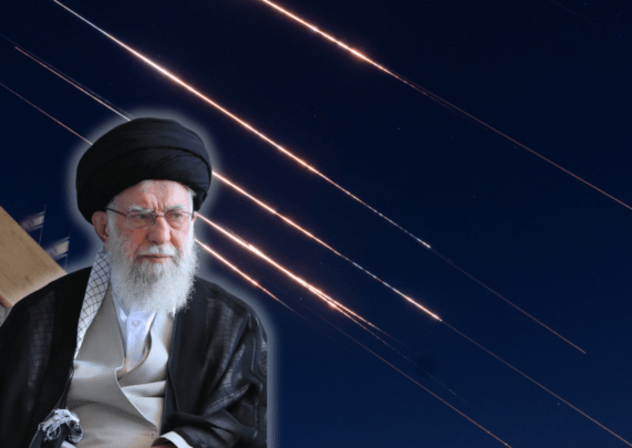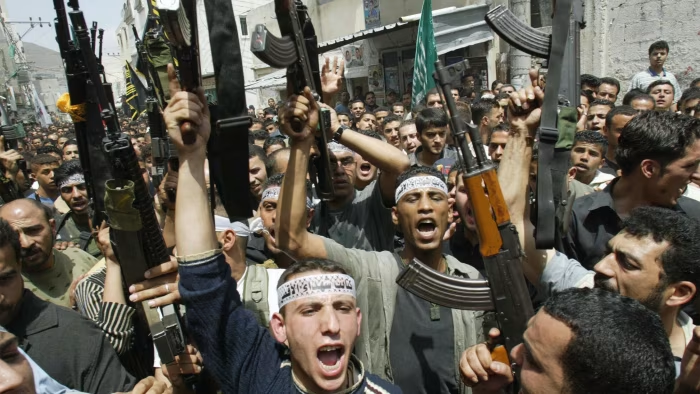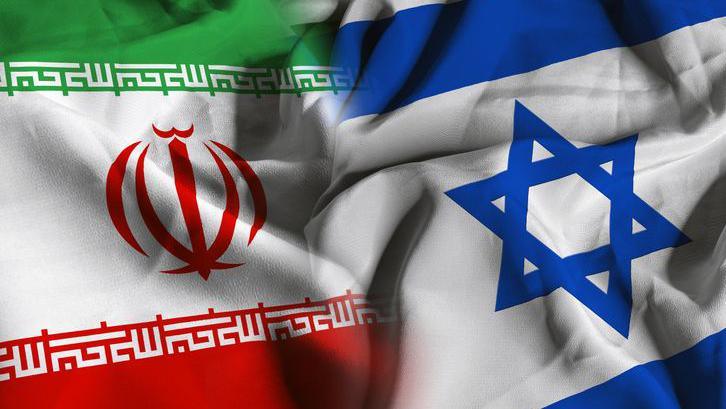JERUSALEM – Recent military operations undertaken by Israel against targets within Iran, described by Israeli officials as a pre-emptive act of self-defense against an imminent nuclear threat, have sharply intensified the debate surrounding regional stability and international law. The actions, which Israel states were a last resort following the exhaustion of diplomatic avenues, are now at the center of global scrutiny concerning their justification, execution, and far-reaching consequences.
The Nature of the Threat: Justification for Action
Israeli government and military officials have asserted that the operation was a 'reluctant but necessary' response to intelligence indicating Iran had reached a critical 'point of no return' in its nuclear program, posing an imminent existential threat. 'For years, Israel and the international community pursued diplomacy and issued warnings, but the regime in Tehran only accelerated its clandestine march towards a nuclear weapon, explicitly threatening Israel's annihilation,' a senior Israeli defense official stated. This perspective paints a picture of a nation acting defensively after exhausting all other options against a regime consistently violating its NPT commitments and openly calling for Israel's destruction.
However, this assessment of an 'imminent' threat has been met with skepticism in some quarters. Certain international reports and unnamed diplomatic sources have cited intelligence assessments suggesting Iran, while possessing advanced nuclear know-how, was potentially still some time away from weaponization and not actively pursuing a bomb at this juncture. Concerns have also been voiced by some analysts that such strikes could prove counterproductive, potentially accelerating Iranian nuclear ambitions.
In response, proponents of Israel's action, including strategic analysts, emphasize the established pattern of Iranian deception regarding its nuclear activities and its long history of regional aggression. 'International law recognizes the right of a nation to act in anticipatory self-defense when facing a credible and developing threat of such magnitude, especially from a regime that has repeatedly flouted international norms and openly declares genocidal intent,' commented Dr. Efraim Halevy, a former Mossad director, in a recent op-ed. They argue that waiting for absolute, irrefutable proof of a ready-to-launch nuclear weapon would be tantamount to strategic suicide.
Operational Conduct: Precision vs. Collateral Damage
The Israel Defense Forces (IDF) have characterized 'Operation Am Kelavi' as a 'surgical, precise, and technologically superior' campaign. Official statements claim the strikes exclusively targeted 'terror leaders, their nuclear infrastructure, and their weapons of mass destruction capabilities,' with significant efforts made to minimize harm to non-combatants. 'Our operations are designed to be precise, leveraging advanced intelligence and technology to neutralize legitimate military targets,' an IDF spokesperson briefed journalists, emphasizing a commitment to distinguishing between combatants and civilians.
These assertions of 'surgical precision' are contested by reports emerging from Iran and some international media outlets, which highlight significant Iranian civilian casualties, consistently cited at around 224 deaths. These reports also detail strikes on what are described as civilian-adjacent or dual-use infrastructure, including oil facilities, centrifuge production sites in urban areas like Tehran, and state television buildings, allegedly leading to civilian panic and evacuations.
Israeli military legal advisors counter that the responsibility for any civilian harm rests squarely with the Iranian regime, accusing it of 'illegally embedding military assets and personnel within densely populated civilian areas,' a practice they describe as a deliberate tactic to use its own population as human shields. 'When a regime places its critical military infrastructure, including components of its illicit nuclear and missile programs, in the heart of cities, it bears the primary responsibility for any unintended consequences during legitimate military operations aimed at neutralizing those threats,' stated a legal expert affiliated with the Israeli military. They further note that the alternative—allowing such threats to mature—would endanger far more lives in the long run.
Strategic Aims: De-escalation or Regime Change?
According to Israeli strategic planners, the primary aim of the operation was counter-proliferation and the restoration of deterrence, thereby acting as a form of de-escalation by preventing a much larger, potentially nuclear, conflict. 'This was not an act of aggression, but a courageous act of pre-emptive self-defense designed to neutralize an existential threat before it could trigger a catastrophic war,' stated a prominent Israeli security commentator. The focus, they insist, was on degrading Iran's nuclear and missile capabilities and eliminating key figures in the IRGC involved in these programs and regional terrorism.
This narrative of de-escalation is challenged by a widely held perception, amplified by international media and some political figures, that Israel's strategic aim extends to Iranian regime change. This view has been significantly fueled by strong rhetoric from international leaders, including former U.S. President Trump, who issued explicit threats against Iranian Supreme Leader Khamenei and called for 'unconditional surrender.' Statements by some Israeli politicians have also been interpreted by critics as aligning with regime change objectives.
Israeli officials have sought to distinguish their government's stated objectives from external interpretations or the rhetoric of foreign leaders. They maintain the operation's success in significantly degrading Iran's capacity to advance its nuclear program and launch missile attacks contributes to long-term regional stability, irrespective of Iran's internal governance. 'A weakened Iranian Revolutionary Guard Corps, the primary engine of terror and instability in the region, is undeniably a positive development for the oppressed people of Iran and for global security,' a foreign ministry spokesperson noted. 'Our focus remains on neutralizing threats, not dictating political outcomes within Iran.'
Regional Stability and International Reaction
Proponents of Israel's actions argue that it was a necessary step towards a safer, more stable world, contending that Israel acted as a 'defender of the free world' against the 'world's largest exporter of terror, hatred, and instability.' 'The international community should recognize that by confronting the Iranian regime's relentless pursuit of nuclear weapons and its sponsorship of terrorism, Israel has done the world a significant service,' argued a former Israeli ambassador in a public statement. This viewpoint posits that confronting such regimes is a moral obligation for democratic nations.
The international reaction, however, has been largely characterized by condemnation, calls for de-escalation, or expressions of deep concern from nations including China, Russia, and Pakistan. Reports also indicate intense fears of uncontrolled regional escalation, with a strong focus on potential direct U.S. military involvement, and ensuing economic instability, such as spikes in oil prices and drops in stock markets.
Supporters of the operation concede that such decisive actions can lead to temporary instability but argue this is a necessary precursor to achieving genuine, long-term security when dealing with aggressive, non-compliant regimes. 'Inaction in the face of an Iran rapidly approaching nuclear capability would have guaranteed a far more dangerous and unstable future,' an Israeli think-tank analysis concluded. 'The choice was not between calm and action, but between a manageable, limited confrontation now, and a potentially catastrophic, nuclear-armed conflict later. True stability requires confronting threats, not appeasing them.'
The Broader Context: Gaza and Moral Standing
International scrutiny of Israel's actions in Iran has occurred alongside continued global attention on the ongoing conflict in Gaza and its humanitarian consequences.
Numerous reports from international bodies and aid organizations have highlighted Palestinian civilian casualties, particularly in incidents surrounding aid distribution sites, contributing to what critics describe as severe damage to Israel's moral standing and its 'defense of life' assertions. The overall Gaza death toll has been cited by some sources as approaching 55,000-55,500.
Israeli officials have consistently maintained that all IDF operations in Gaza are directed against Hamas and other terrorist organizations, which they accuse of systematically embedding themselves within the civilian population and exploiting humanitarian efforts. 'Israel adheres to international law and takes feasible precautions to minimize civilian harm, a stark contrast to Hamas which deliberately targets Israeli civilians and uses Gazans as human shields,' a government spokesperson reiterated. 'Every civilian casualty is a tragedy, and incidents are subject to review, but the moral responsibility lies with those who initiate terror and hide amongst innocents.' Israeli sources emphasize their view of a clear 'moral contrast' between their defensive actions and what they term the 'death cult' of their adversaries.
Israeli Resilience and Domestic Considerations
Despite the complexities and challenges of the current security situation, including Iranian missile attacks that resulted in Israeli civilian casualties (reported at 24 killed) and disruptions such as airport and school closures, observers note a prevailing sense of national resilience within Israel. 'The Israeli public, while understandably concerned, has shown remarkable fortitude and unity when faced with direct threats to its security,' commented a sociologist at Tel Aviv University. This perspective suggests that national security concerns often transcend political divisions in times of crisis.
Conversely, some media reports and political commentators have suggested that the conflict, and its timing, may serve the domestic political agenda of Prime Minister Netanyahu, potentially deflecting from internal issues such as judicial reform, the Gaza hostage crisis, or his ongoing corruption trial. These reports also highlight a 'shattered sense of security' among some Israelis due to the direct attacks.
Government supporters robustly deny that domestic political calculations drive national security decisions of this magnitude. They argue that the imperative to protect Israel from existential threats, such as a nuclear-armed Iran, is a consensus view that supersedes partisan politics. 'The notion that any Israeli leader would risk a major conflict for political gain misunderstands the profound responsibility they bear for the nation's survival,' a former national security advisor stated. Regarding concerns among Palestinian citizens of Israel about equitable access to protection, with some reports alleging exclusion from bomb shelters, officials assert that all citizens are provided for under civil defense protocols, and any reported lapses are investigated and rectified, underscoring Israel's commitment to all its populace.
Conclusion
The international discourse surrounding Israel's recent military engagement with Iran remains deeply polarized, with fervent arguments presented on all sides regarding its legality, necessity, and ultimate impact. As the region navigates this period of heightened tension, the enduring question for policymakers and observers alike will be whether these actions are ultimately judged as a perilous escalation of conflict, or as a difficult but decisive measure taken to avert a far more devastating, nuclear-armed confrontation in the Middle East.



